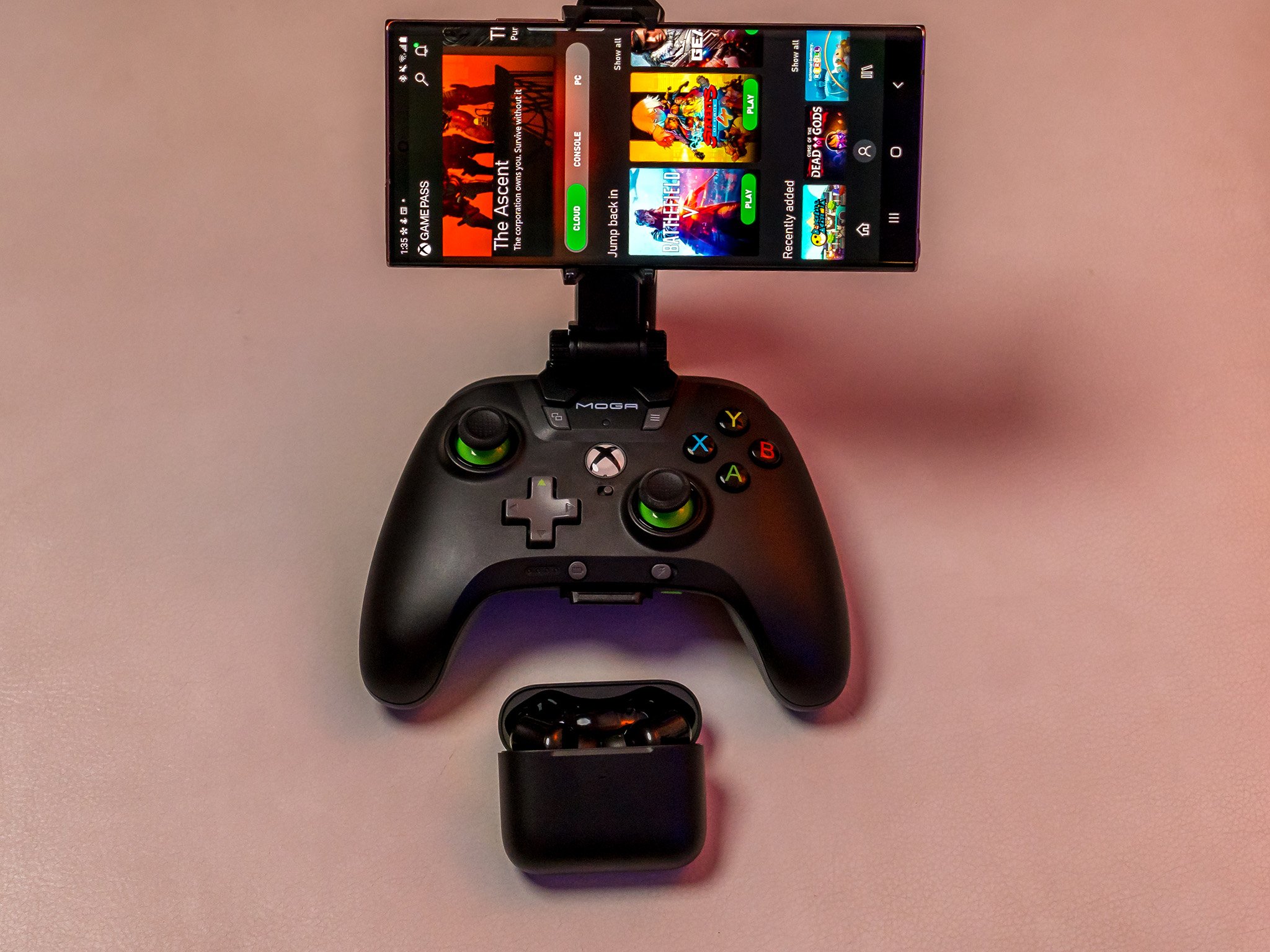Android Central Verdict
Bottom line: Razer gives the Hammerhead True Wireless an overhaul by emphasizing both gameplay audio performance and aesthetic touches, making them stand out from the inside out. They're not what you'd consider "pro" level, so you don't get everything, but the parts add up to a very nice overall package.
Pros
- +
Good audio quality
- +
Comfortable fit
- +
RGB Chroma support
- +
Companion app features
- +
ANC and ambient modes
- +
Decent battery life
Cons
- -
No spatial audio
- -
Earbuds are fingerprint magnets
- -
Touch controls are finicky
Why you can trust Android Central
True wireless earbuds are now everywhere, and as they become more prevalent, specialized sub-categories have also started to emerge. Wireless gaming earbuds are one such category on the rise, and it makes sense that Razer is at its forefront, making a stronger case that earbuds like these are worth their specialized focus — and your attention.
The Hammerhead True Wireless — or at least the 2nd-gen, 2021 iteration — are all about making gaming feel especially mobile and portable. There's a clear attempt to make them fit with Razer's other gaming peripherals for those looking for uniformity. But these earbuds should cater to any gamer looking for latency-free sound in a lightweight package, with or without other Razer tech.
Razer Hammerhead True Wireless (2021): Price and availability
Razer officially launched the Hammerhead True Wireless in August 2021, and they are the second iteration of the same pair of earbuds. The originals they're based on will be discontinued as a result. Currently, the 2nd-gen earbuds can only be found on Razer's site, but should come to stores like Amazon and Best Buy soon.
The Razer Hammerhead True Wireless (2021) are now available for $129.99 online and in retail stores, though they may not drop in price in the near term. They only come in black, though the Razer logo on the outer shell changes to a wide range of colors.
Razer Hammerhead True Wireless (2021): What's good

To be clear, these earbuds aren't the Hammerhead True Wireless Pro, which continue to be Razer's best wireless earbuds based on performance and design. But the Hammerhead True Wireless (2021) close the gap through smart design tweaks and features that make it easier to appreciate what they can do.
As always, finding the best fit is crucial to getting more out of any pair of earbuds. There are three sizes of ear tips in the box, all of which are your standard silicone variety. Razer opted to make the drivers oval-shaped to accommodate more ears and push more audio through. While I never had the chance to use the previous version of the Hammerhead True Wireless, I have used the Pro version, and it became clearer to me just how much Razer adapted from there to here.
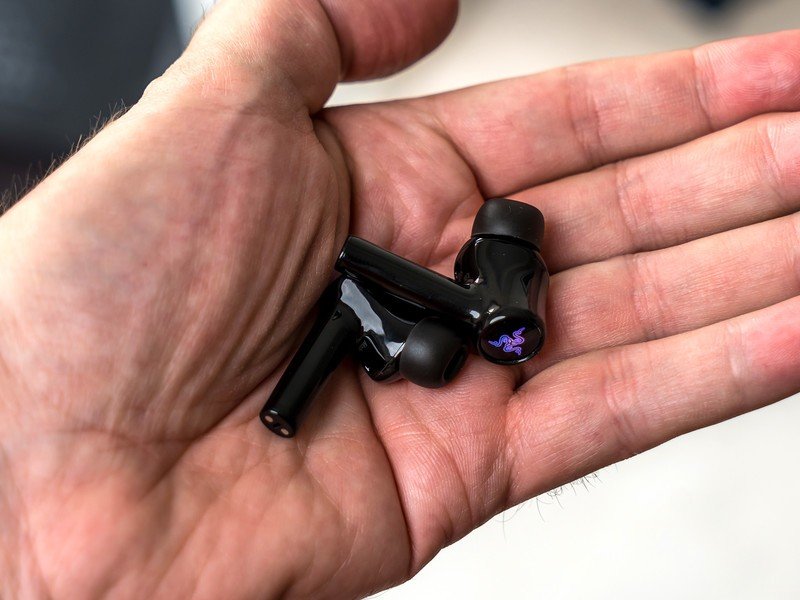
You get active noise cancelation (ANC), albeit with slightly different tech governing how it actually works. The Pro version used a pretty standard hybrid ANC model whereby multiple microphones work to nullify background noise. This 2021 iteration of the Hammerhead True Wireless have "Feedforward" ANC, meaning they use the mics to prioritize the most common background sounds, like a humming plane, train, or car, as well as "urban environmental sounds." It's hard for me to qualify exactly what sounds do or don't squeak through because of it, but needless to say, you should find them pretty reliable at blocking out redundant sounds, especially when you choose the right tips and form a passive seal in your ears.
Even when you switch to ambient sound mode, no noteworthy or annoying sounds seeped in. They let me hear my surroundings in public or converse with people but still passively blunt the outside world. Both ambient sound and ANC work because Razer went with more of an in-ear design than previous models.
A tight seal, synced audio, and EQ presets help the Hammerhead deliver when playing any game.
Its noise cancellation really shines when the music starts. Sound quality for any pair of wireless earbuds lives and dies on how good the seal is. I don't have a basis for comparison from their predecessors, but these earbuds do sound good when you take the time to tinker with them. Razer's Audio app has a customizable EQ, including some presets, to help squeeze more out of their sonic abilities. We're not talking audiophile quality here, but that's not necessarily the point.
What's key is that they can deliver when playing any game. The 60ms response time is what you'd expect from any pair of wireless gaming headphones, and Razer didn't make any adjustments there from before. They don't support aptX Low Latency, but rather the AAC and SBC Bluetooth codecs. When I paired them with a Samsung Galaxy Note 20 Ultra that I've used for mobile gaming, the sound was totally in sync with the action. Same when I wanted to watch a movie or show. Razer included a Gaming mode for that very purpose, though I wish it were more seamless in activating it from the earbuds' outer touch controls.
Speaking of which, the earbuds' RGB Chroma support adds visual flair on top of the outer touch area. Gamers who appreciate a "gamer" look will like this feature, especially if they have other Razer gear to coordinate colors. Razer's RGB Chroma app also lets you customize colors and patterns to give it all the personalization you'd want.
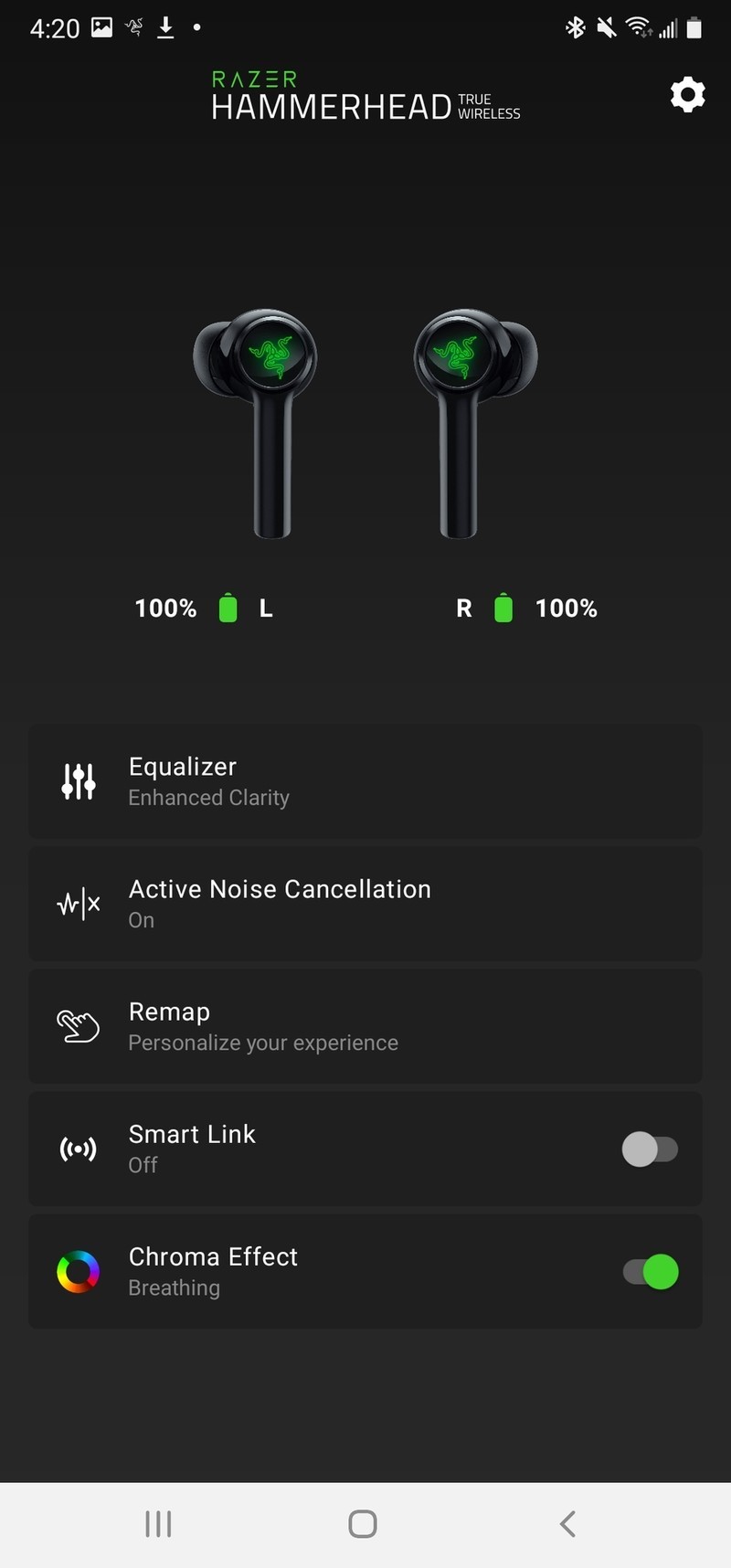
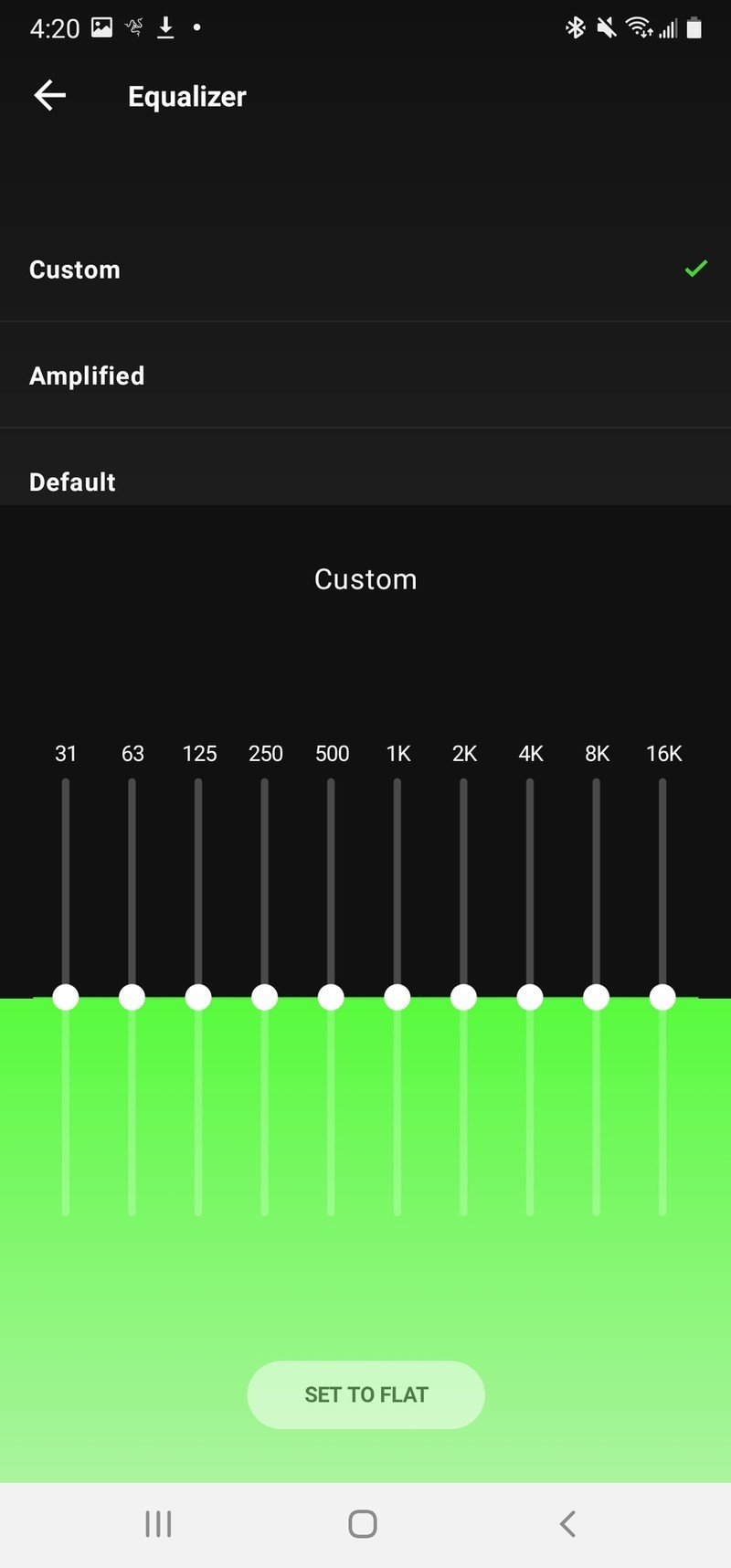
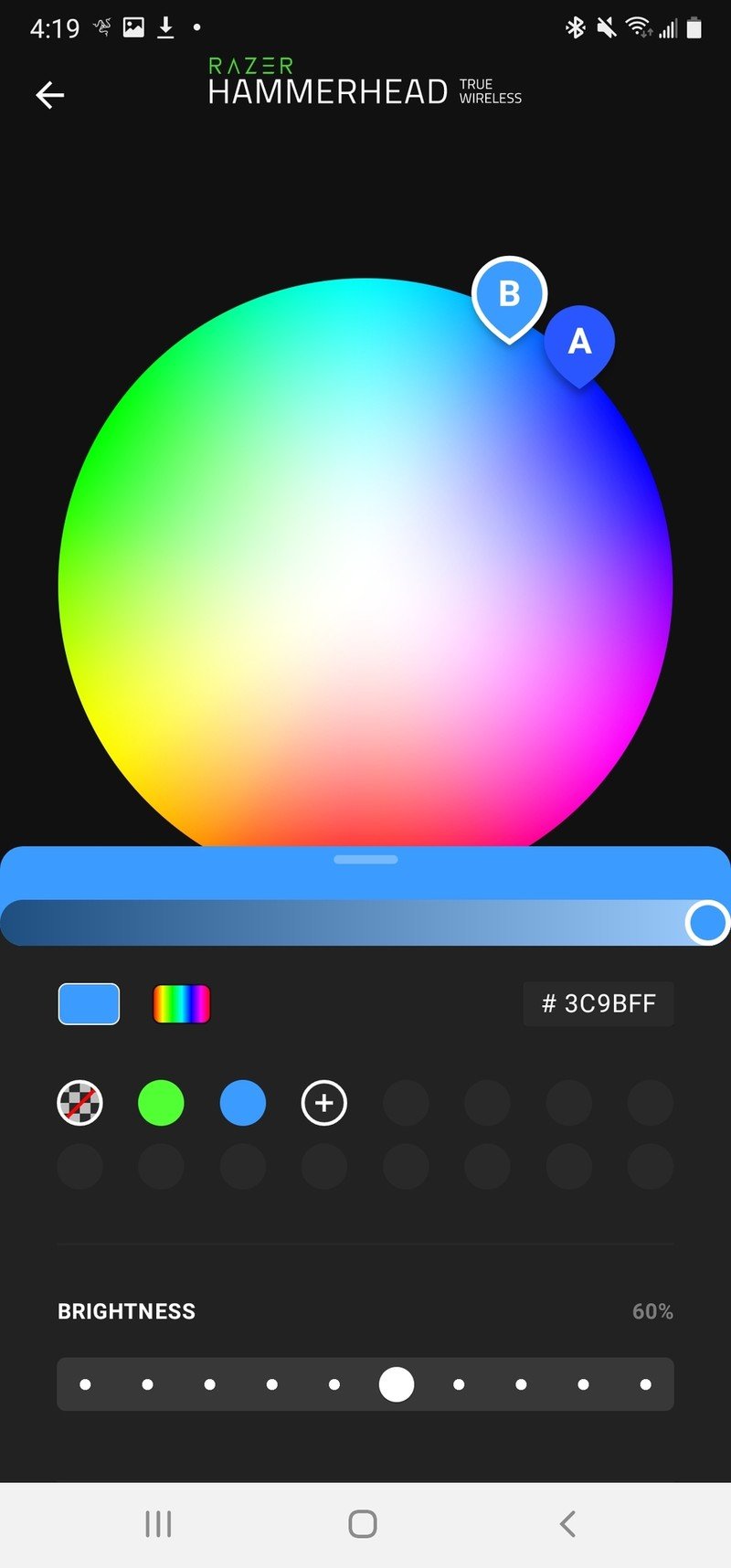
Source: Razer
The Bluetooth connection held up well throughout, though hiccups did happen once in a while. Razer touted the onboard mics being able to pick up voices well for calls and video chatting. I found that to be true, for the most part, except I can't be sure how well it works when you're gaming online. In that case, your Internet connection is the biggest factor in ensuring a steady flow of conversation.
What I can say is that everything I've mentioned affects battery life in different ways. For example, if you have ANC and RGB lighting on, these probably won't play for longer than four hours per charge. Turn both off, and you may be able to stretch it out to over six hours. Any combination of off and on for those two features will pit you somewhere in the middle for longevity. The case will get you an extra four charges, though you'll need to plug in via USB-C to recharge it.
Razer Hammerhead True Wireless (2021): What's not good
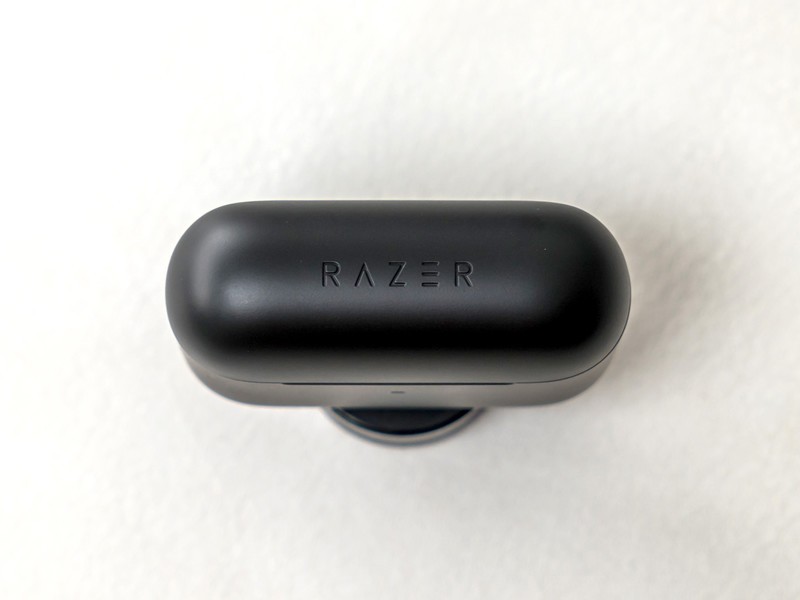
Despite the solid gaming performance here, a glaring omission is the lack of spatial audio. While one could argue that you'd only see that feature on more premium earbuds, I still wished Razer had included it. When I played Battlefield V on Xbox Game Pass, enemy troops' voices and footsteps felt directional but not necessarily spatial. I couldn't always tell whether a voice was behind me to the right or in front of me off to the right. My guess is that Razer will hold a feature like that for the next version of the Hammerhead Pro.
The onboard controls should be pretty straightforward, except they don't always perform that way when actually touching the earbuds to make adjustments. My tapping frequently caused accidental skipped or repeated tracks. And all that touching leads to fingerprints smudging the piano black veneer all too often. I get that Razer wanted to differentiate these earbuds from the Pro version, but glossy black doesn't always work with products that require you to put your fingers on them all the time.
Despite the solid gaming performance here, a glaring omission is the lack of spatial audio.
Unlike the Pro version, there's not a ton of durability here, either. There is no serious water resistance, so be careful if you plan to use them near water. And if you are looking to use these earbuds with a game console, you will need a Bluetooth adapter (Razer sells one separately) to make that happen.
Razer Hammerhead True Wireless (2021): Competition
For Razer, these earbuds represent a more affordable route to mobile gaming without making as many sacrifices as their predecessors required. Finding good earbuds with low latency isn't always easy. The Hammerhead True Wireless Pro are certainly an option if you want to stick with Razer and have more money to spend. Even the Jabra Elite Active 75t accord themselves well, despite not being "gaming" earbuds.
The best wireless earbuds are filled with great options, though you will rarely find a pair that are as low latency as the Hammerheads are. Even if you were on a budget looking at the best cheap wireless earbuds, you wouldn't always find a pair that fits. And if it's aptX Low Latency you're looking for, those options are limited when it comes to in-ear designs.
In other words, there aren't many competing alternative earbuds that offer everything Razer does with the Razer Hammerhead.
Razer Hammerhead True Wireless (2021) Should you buy it?
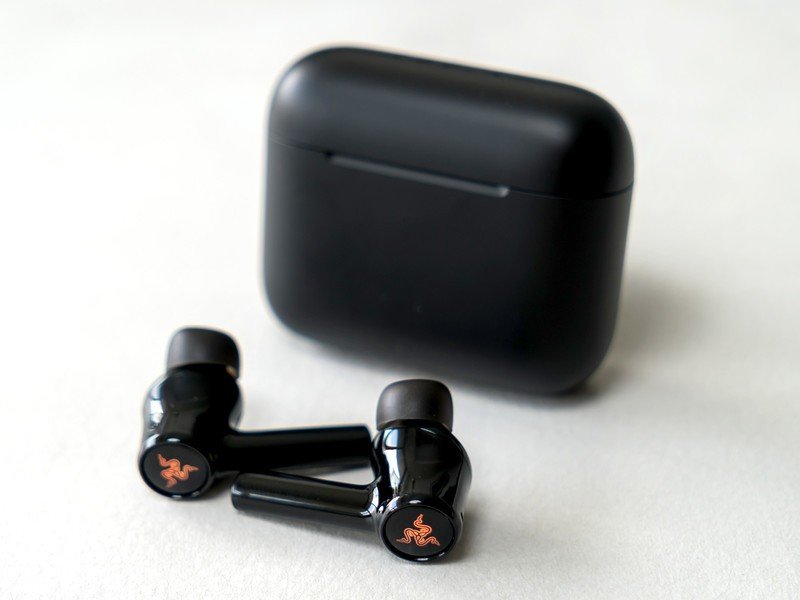
You should buy this if ...
- You want wireless earbuds for gaming
- You care about low latency
- You're looking to pay a little less
- You like having active noise cancelation
You shouldn't buy this if...
- You don't care for earbuds that light up
- You prefer a wired connection
- You want more durability
- You're willing to spend more
Razer left behind the previous Hammerhead True Wireless and looked to the Pro version to figure out how to improve on its entry-level buds in 2021. With ANC, ambient mode, RGB Chroma, new microphones, and solid app support, it's hard to complain about what these earbuds offer out of the box. Gamers are a hard bunch to impress, so mileage may vary, especially considering the battery life, but there's a lot to like from my vantage point.
4 out of 5
The Razer Hammerhead True Wireless (2021) arguably offers a better deal than the current Pro earbuds. I liked how those came with foam tips for a better seal, but you can always buy them separately if you want to apply them to the new, cheaper set. These earbuds were made for some level of customization. Utilize that, and you may find the right fit all around.
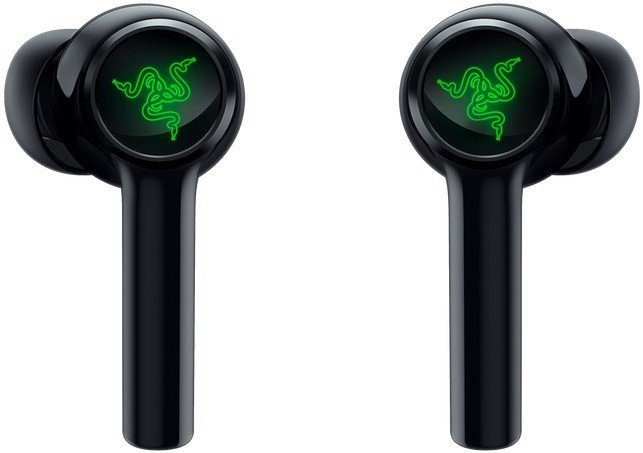
Razer Hammerhead True Wireless (2021)
Game on anywhere
Razer gives the Hammerhead True Wireless a makeover, including RGB Chroma light treatment to add some visual flair to earbuds built for gaming and media consumption. You don't necessarily have to be a gamer to go for these if you also like to watch movies and TV shows on your various devices.

Ted Kritsonis loves taking photos when the opportunity arises, be it on a camera or smartphone. Beyond sports and world history, you can find him tinkering with gadgets or enjoying a cigar. Often times, that will be with a pair of headphones or earbuds playing tunes. When he's not testing something, he's working on the next episode of his podcast, Tednologic.
